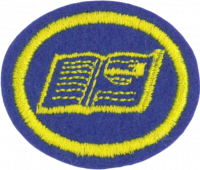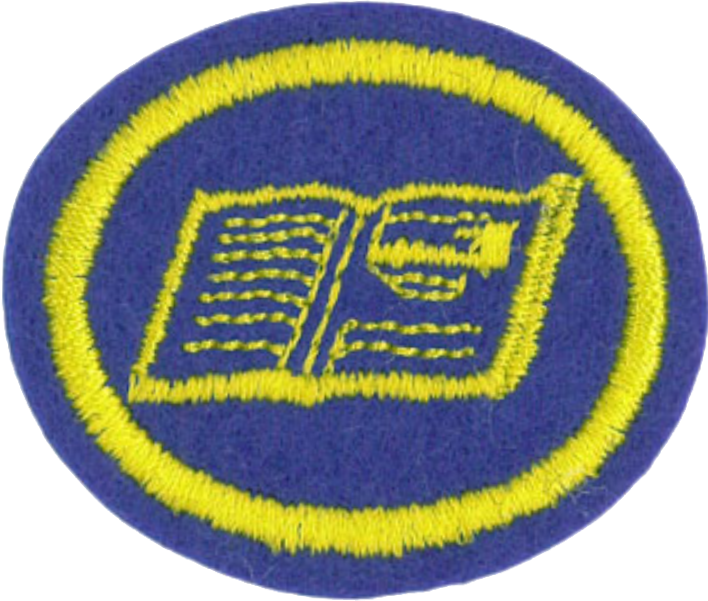AY Honor Literature Evangelism Answer Key
1
In Acts 20, Paul indicates that he operated by going house-to-house, as does the colporteur:
When they arrived, he said to them: "You know how I lived the whole time I was with you, from the first day I came into the province of Asia. I served the Lord with great humility and with tears, although I was severely tested by the plots of the Jews. You know that I have not hesitated to preach anything that would be helpful to you but have taught you publicly and from house to house. I have declared to both Jews and Greeks that they must turn to God in repentance and have faith in our Lord Jesus.
For Ellen White comments, see Testimonies for the Church, Volume 6, pp 321-340.
2
- A calling to the ministry.
- Passion for the work of Literature Evangelism.
- Perseverance.
- Faith.
- Courage.
3
The term "colporteur" is an alteration of French comporter, "to peddle" as a portmanteau or pun with the word col (Latin collum, "neck"), with the resulting meaning "to carry on one's neck". Porter, is from Latin portare, "to carry." It could also be interpreted to mean "to carry one's neck" which is not far from accurate. The colporteurs are self-supported, meaning that no money is provided to them by the church. Their income comes from the literature they sell.
4
- Prayer.
- Opening - the colporteur introduces himself/herself and tells the recipient (person being evangelized) what they are doing in that area.
- Information - the colporteur tells the recipient about the material.
- Close - the colporteur tells the recipient the average donation accepted for the books they have been given and where the proceeds would go.
5
- Know your material
- One of the easiest ways to arouse interest is to know what your talking about. A good way of doing this is to read one of the books for your devotion every morning.
- Be observant
- This is helpful because if you are observant you may notice things such as a small child's toys (indicating they most likely have a small child) or if you smell something cooking it might be a good idea to show them one of your cookbooks. And it doesn't stop there! While you are talking to them always be on the lookout for any hints that would show you which books they would be most interested in.
6
The most common objection that you will hear is "I'm not interested". Most people have no other reason to be "not interested" except that they want you off their porch! Here are a couple of ways to get around that objection:
- Be flexible. For instance, if I handed a potential recipient one of the books and they said that they're "not interested" I can apply that to the book that I handed to them and transition into another book by saying something like, "well maybe you'll be more interested in this book instead".
- Ask them why they are not interested. Now this way is a little bit more forward and you would want to be VERY CAREFUL in asking them that because you DO NOT want to offend them.
7
7a
The first thing you must do is decide where you will place your literature rack. Laundromats, taxi waiting rooms, subway stations, bus stops, and doctor's offices are all good options, because these are places where people wait. You must then get permission to put your rack there. Most private operations (doctors, laundromats, etc.) will welcome the addition of the rack, as it provides their patients with something to read at no cost to them. They may already have a rack that they will let you use, or they may require that you provide one. If you provide the rack, they may wish to approve of it (to ensure it does not clash with their other furnishings, for example).
Then you will be ready to stock the rack with literature. Record a complete inventory when you do this. Return weekly (at a minimum) and take inventory and to restock. The reason for tracking which publications are the most popular is so that you may provide more of them. You are there to meet the people's needs!
Be sure to speak with the proprietors and thank them every time.
7b
The Review and Herald offers several editions of Ellen G. White's Steps to Christ at a price that facilitates large purchases (under $1.00 per copy). This book is available with a number of covers, and you should select one that you think will have the best effect in the community in which you intend to distribute it.
Determine how many copies you will need, then raise the funds to purchase the books. You may use other literature other than Steps to Christ as well, but this book has a proven track record. The next thing you must decide is whether you will distribute the literature door-to-door or via a mass mailing. Door-to-door is by far the cheaper option. You will probably not get the literature into as many homes as with mailing because each home must be visited, and some people will refuse to take the literature. However, those who do take it will have the opportunity to meet you and evaluate your character. For the receptive soul, this can make all the difference.
For mass mailing, contact your local post office for instructions. They will tell you their requirements and even provide you with information necessary to send a mailing out to every address in a given zip code (including how many addresses there are).
If you choose to distribute the literature door-to-door, assemble the literature into plastic bags which can be easily hung from a door knob. Do not hang the literature on any mailbox or put it inside one. Doing so is a federal offence! Don't forget to include the response card so that if the literature arouses an interest, the person will know how to get in touch with your church.
Before setting out, rehearse what you will say.
When you arrive, approach the house and knock on the door. Do not walk on the grass unless there is no other option, and be mindful of flower beds. If no one answers, place the literature where they will find it. This usually means you must select the door they are likely to use rather than the "visitor" door that they may rarely open. If someone does answer, you will have already practiced what to say. Be polite, even if the person is rude to you. If they tell you to leave, do so as politely as you can. Remember that you are an ambassador for Christ! Maintain a cheerful attitude throughout your day, even if you think no one is watching — they might be!.
7c
The main difference between this activity and the one described in section b above, is that you will be selling the literature instead of giving it away. Even so, everything covered there applies here as well. In addition, you must use the skills you learned in the rest this honor (remembering the essential qualifications, knowing the four steps in making a sale, knowing how to meet objections, etc.). Above all, be kind and polite at all times!
We highly recommend that rather than attempting this on your own, you look into the Magabooks program. From their website,
- It is an evangelistic program that will give you the opportunity to work as a student missionary with a group of 15 to 25 youth.
Magabooks is a concatenation of the words Magazine, and Books. This program will provide all the training you need, and will provide you with a source of income for the summer.
7d
7e
7f
Contact the editors of Liberty magazine at http://www.libertymagazine.org/ (look for the "contact us" link). You will also need a list of judges and lawyers in your community. Lawyers will be listed in the Yellow Pages or in the business section of your local phone book. Contact your local courthouse to get a list of judges.
Once you know how many lawyers and judges are in your community, you will be able to determine the cost of the subscriptions. Then set a goal to raise enough money to cover them. Here are some ideas for fundraising:
- Car wash
- Yard Sale
- Bake Sale
- Recycle ink cartridges
- Rent a Pathfinder
For more fundraising ideas, see the fundraising section of the NAD Pathfinder forum.
7g
Before collecting any material, figure out where you are going to send it. Your local conference office should be able to put you in touch with a missionary. Contact them first, not only to get a shipping address, but also to ask what types of literature they can and cannot use. Some countries limit the types of literature that can be imported, so it is important to check before you send anything. You would not want all your hard work to be wasted by having your literature destroyed at the border of the country you are sending it to.
Once you have made contact with the missionaries and have a list of things they can use, then begin assembling the literature.
Historical Notes
This honor was introduced in 1928 with the name "Colportage". The name was changed to “Literature Evangelism” 1956.


